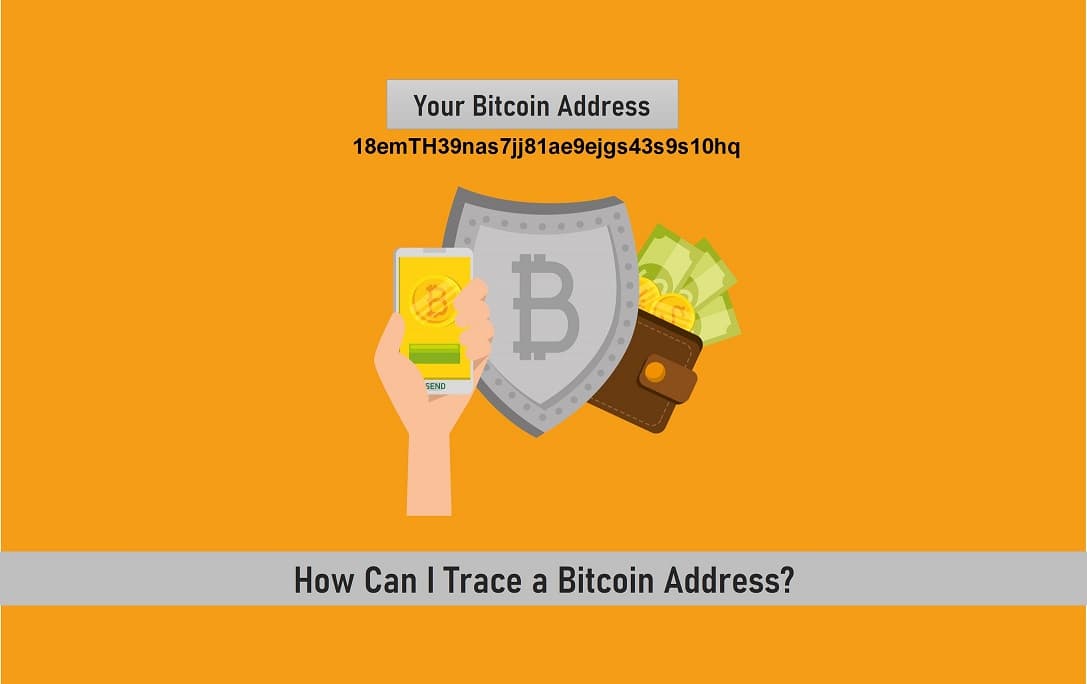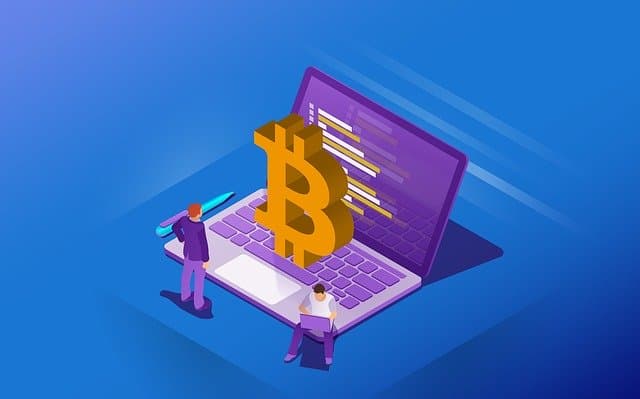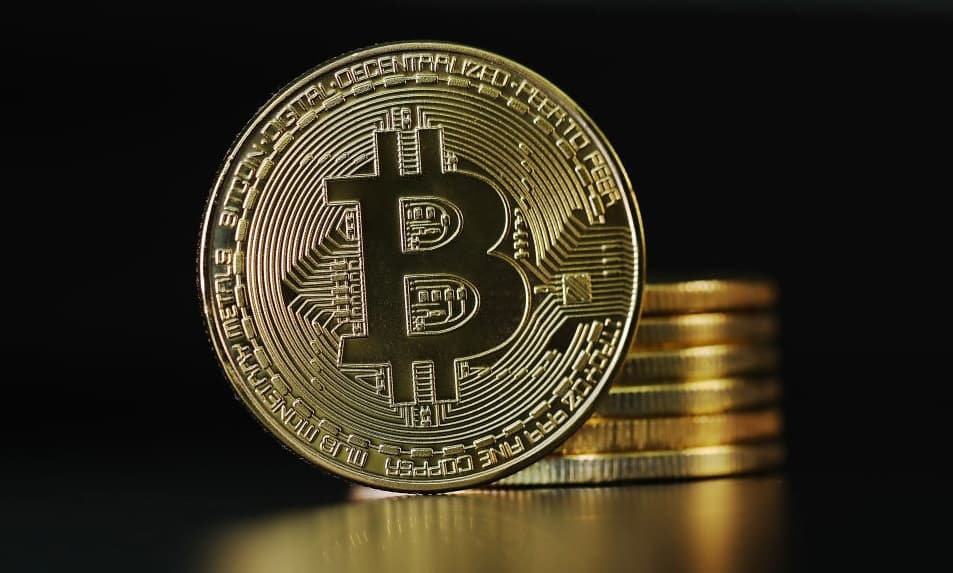
Many think Bitcoin is entirely anonymous. However, forensic analyses are very much likely to trace any Bitcoin address used in a transaction. That means Bitcoin is indeed a pseudo-anonymous transaction.
All Bitcoin transactions and the corresponding wallet addresses are recorded on a public Blockchain – the specific Bitcoin blockchain. They are open and accessible to all.
But Bitcoin wallet addresses do not disclose any identifiable details on their own. They do, however, provide a basis for further inquiry.
Imagine a Bitcoin address like an email address or an online alias; the link to your activities largely depend on what you do.
For example…
While publicly displaying your Bitcoin wallet address on a forum, you may have used the same username in some other way, even though it is not shared with identifiable data.
In another post on the forum with the same user name, you may have shared identification details, which someone may monitor by viewing your posting history. You can also use an e-mail address to register on the public forum. Connecting the dots is likely to lead to a hack.
Key Takeaways
• Bitcoin is difficult to hack due to the Blockchain technology running its transactions.
• Coinpath® technology is designed to efficiently trace Bitcoin transactions.
• Research is being done to ensure future improvements of Bitcoin data security and protection.
Since one can view all transactions on the Bitcoin network, you can group multiple Bitcoin addresses. It is important to note that you can then be bound to the same address. If only one address through one or more other de-anonymization methods is connected to a real-world identity, then all of them may as well.
Is Bitcoin Anonymous?
No, it is not, as Bitcoin is pseudonymous meaning that every transaction is stored in the blockchain forever.
In other words, Bitcoin has no real-world identities in store. However, the use of Bitcoin analysis software lies in linking real-world identities to Bitcoin addresses.
What Makes Bitcoin Traceable?

Today, Bitcoin Blockchain confirms approximately 10 million monthly transactions with about 400,000 transactions per day as of early January 2021 according to Statistica. The Bitcoin Blockchain reveals all these transactions.
But only addresses, public keys, and not real-world IDs are stored in Blockchain. Therefore, the primary way to link real-world identities with bitcoin transactions is by virtual assets service providers (VASP).
For instance, VASPs such as Exchanges, wallets, and custodians provide retail users and businesses with cryptocurrency services.
KYC (Know your customer) solutions are implemented by many Exchanges, therefore, mending the relationship between real-world identity, Bitcoin addresses, and transactions.
But some Exchanges do not implement KYC verifications.
How to Trace Bitcoin transactions?
Bitcoin transactions are not efficiently followed by standard Blockchain explorers.
For example, it can take days to track and map all such transactions if a criminal uses hundreds of interim wallets.
Coinpath® technology is designed to efficiently trace Blockchain transactions. It uses advanced algorithms to monitor the flow of money on the Blockchain. Furthermore, Bitquery explorer provides a cash flow chart, a visualization tool for Bitcoin transactions.
To identify the real identity of a hacker, an investigation is carried out to find all the transactions related to a given Bitcoin address.
The Coinpath® APIs give you all the source and destination addresses that sent or received transactions from any bitcoin address.
It would have taken hours to trace bitcoin transactions using a standard explorer because every layer involves multiple intermediate wallets.
However, the Coinpath® technology provides this information in a single API call. Similarly, you can trace a Bitcoin address used in sending money to a hacker’s wallet.
Challenges in Tracing Bitcoin Transactions

Bitcoin is an alphanumeric strings and numbers database. There is no real-world identity there. Therefore, when identifying transactions presents some challenges.
Auto custody and intermediate wallets
You can easily build thousands of wallets and customize your money on the Bitcoin Blockchain. Also, when laundering crypto-currency money, criminals create interim wallets to remove the source identity.
Mixers
Services such as mixers have been created to improve confidentiality. Criminals use it, however, to mix funds, creating issues with bitcoin tracking.
Unregulated encryption service (VASP)
Bitcoin is a public Blockchain, a universal digital currency that everyone can add on. Many countries fail to apply proper crypto-services KYC/AML laws (VASPs). Consequently, criminals process and convert illicit funds into fiat via these services.
Opportunity for Improvements in Bitcoin Security
As the world embraces cryptocurrency, improvements in privacy should be expected. For example, some efforts are being made to prevent multiple addresses from being tainted together during a payment with the API payment messages.
Other wallets could be implemented with time to Bitcoin Core Change addresses.
To provide user-friendly payment request features, the graphical user interface may be increased and addresses reuse discouraged.
There are also different works and research to develop other potential extended features of data protection such as the ability to join random transactions among users.
Frequently Asked Questions (FAQ)
1. Can the police trace Bitcoin?
The police can very much trace Bitcoin as Bitcoin is very much traceable. See this post on How to Get Back Stolen Bitcoin from Cybercriminals.
2. Can Bitcoin be traced to IP?
Bitcoin cannot be traced to an IP as there is no relationship or connection between these two even if transactions are initiated online from a location that has latitude and longitude IP points.
3. Can a Bitcoin crash?
Bitcoin is volatile and is prone to market swings. In April 2021, Bitcoin fell from $63k per BTC to a very low point of about $29k in July 2021. Bitcoin is however recovering as analysts have predicted.
Final Thoughts
It is possible to trace Bitcoin addresses although it may not be easy to do. So, make efforts to make sure that your wallet addresses, private keys are kept safe and secure from the public.
Hopefully in the future, improvements concerning wallet address privacy would be greatly done and wallet address thefts and all other criminal activities would be on the decline.
Read More




